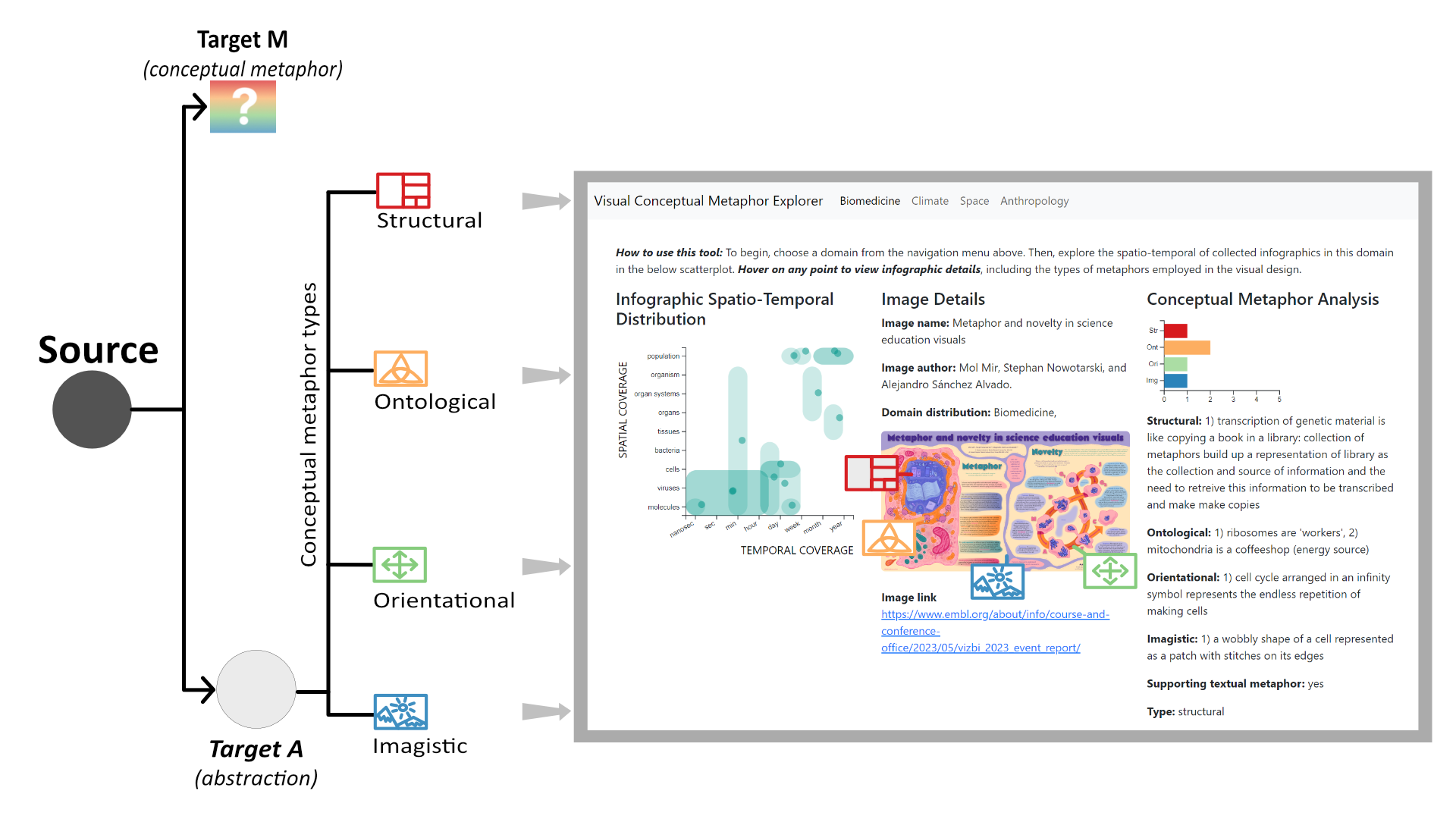The Language of Infographics: Toward Understanding Conceptual Metaphor Use in Scientific Storytelling
Hana Pokojná - Masaryk University, Brno, Czech Republic
Tobias Isenberg - Université Paris-Saclay, CNRS, Orsay, France. Inria, Saclay, France
Stefan Bruckner - University of Rostock, Rostock, Germany
Barbora Kozlikova - Masaryk University, Brno, Czech Republic
Laura Garrison - University of Bergen, Bergen, Norway. Haukeland University Hospital, University of Bergen, Bergen, Norway
Download preprint PDF
Download Supplemental Material
Room: Bayshore V
2024-10-16T12:54:00ZGMT-0600Change your timezone on the schedule page
2024-10-16T12:54:00Z

Fast forward
Full Video
Keywords
Visualization, visual metaphors, science communication, conceptual metaphors, visual communication
Abstract
We apply an approach from cognitive linguistics by mapping Conceptual Metaphor Theory (CMT) to the visualization domain to address patterns of visual conceptual metaphors that are often used in science infographics. Metaphors play an essential part in visual communication and are frequently employed to explain complex concepts. However, their use is often based on intuition, rather than following a formal process. At present, we lack tools and language for understanding and describing metaphor use in visualization to the extent where taxonomy and grammar could guide the creation of visual components, e.g., infographics. Our classification of the visual conceptual mappings within scientific representations is based on the breakdown of visual components in existing scientific infographics. We demonstrate the development of this mapping through a detailed analysis of data collected from four domains (biomedicine, climate, space, and anthropology) that represent a diverse range of visual conceptual metaphors used in the visual communication of science. This work allows us to identify patterns of visual conceptual metaphor use within the domains, resolve ambiguities about why specific conceptual metaphors are used, and develop a better overall understanding of visual metaphor use in scientific infographics. Our analysis shows that ontological and orientational conceptual metaphors are the most widely applied to translate complex scientific concepts. To support our findings we developed a visual exploratory tool based on the collected database that places the individual infographics on a spatio-temporal scale and illustrates the breakdown of visual conceptual metaphors.